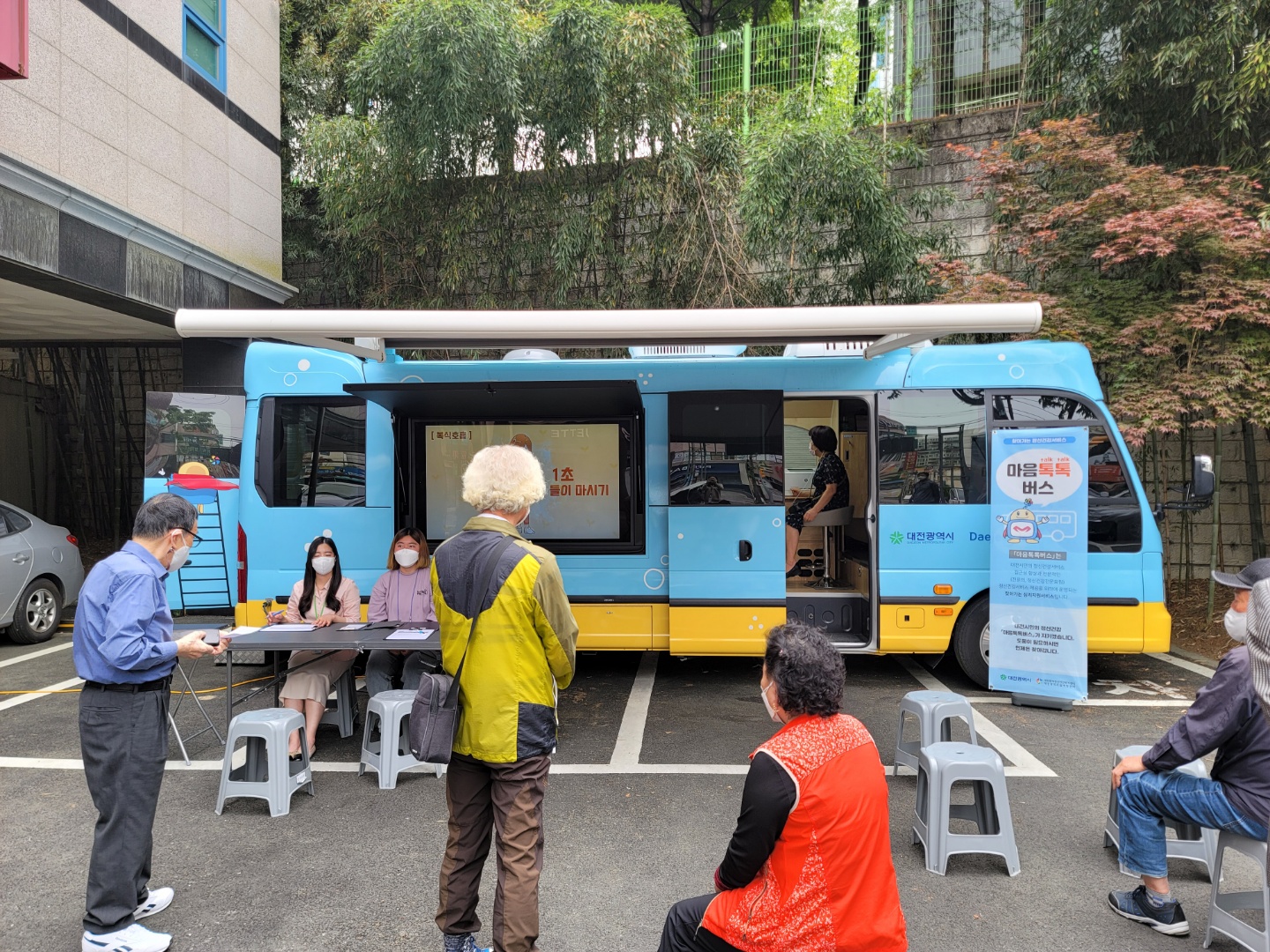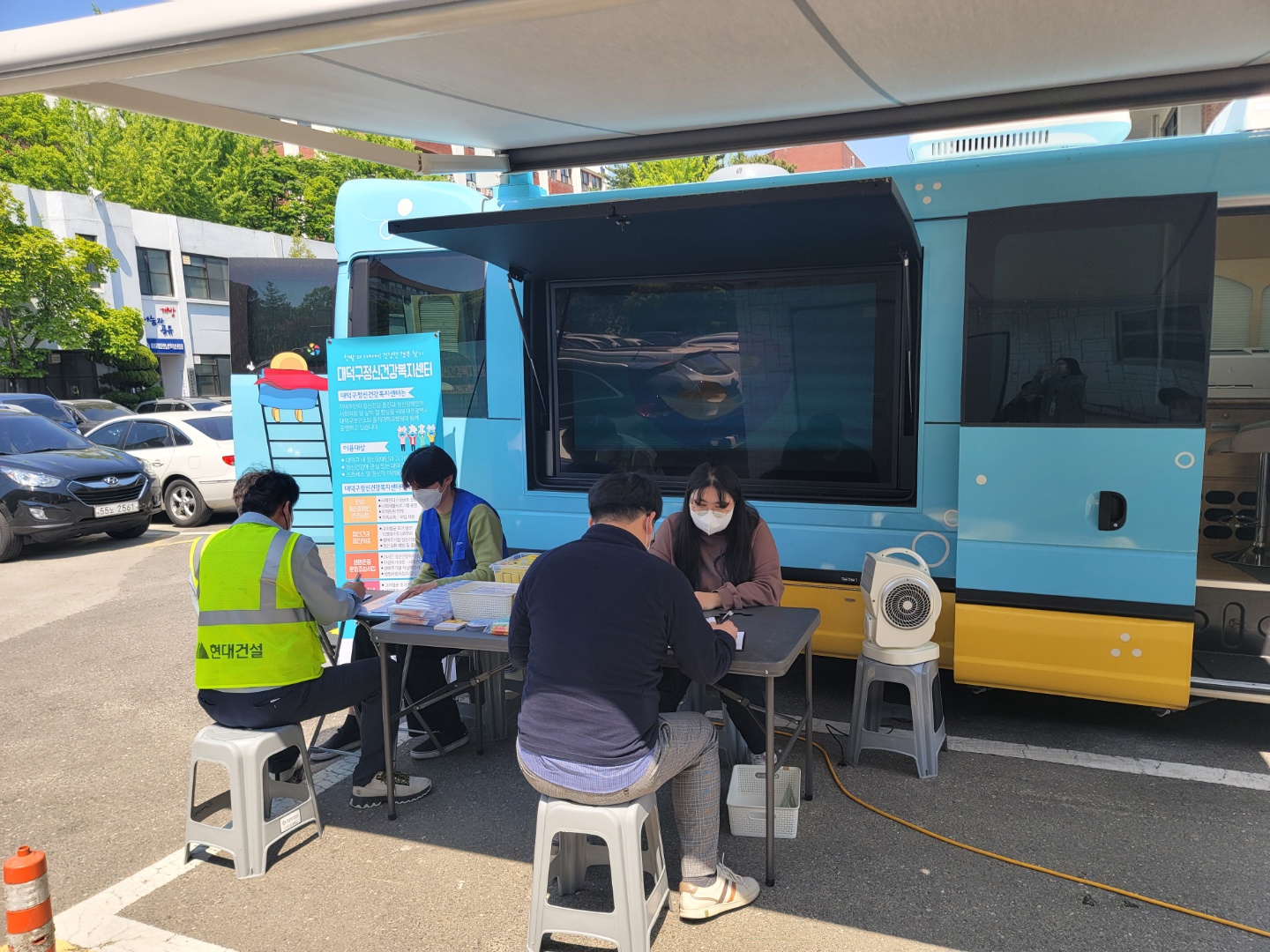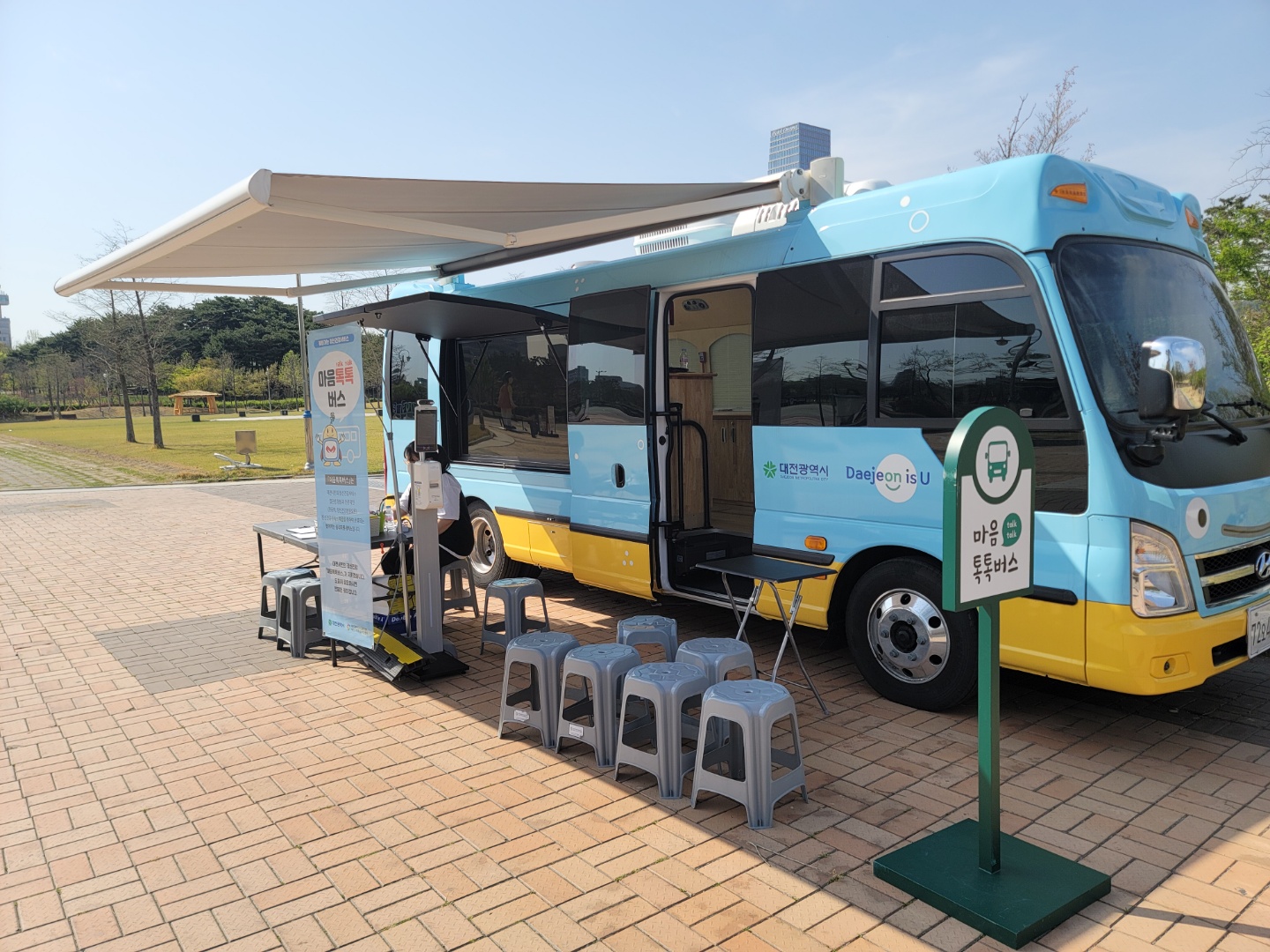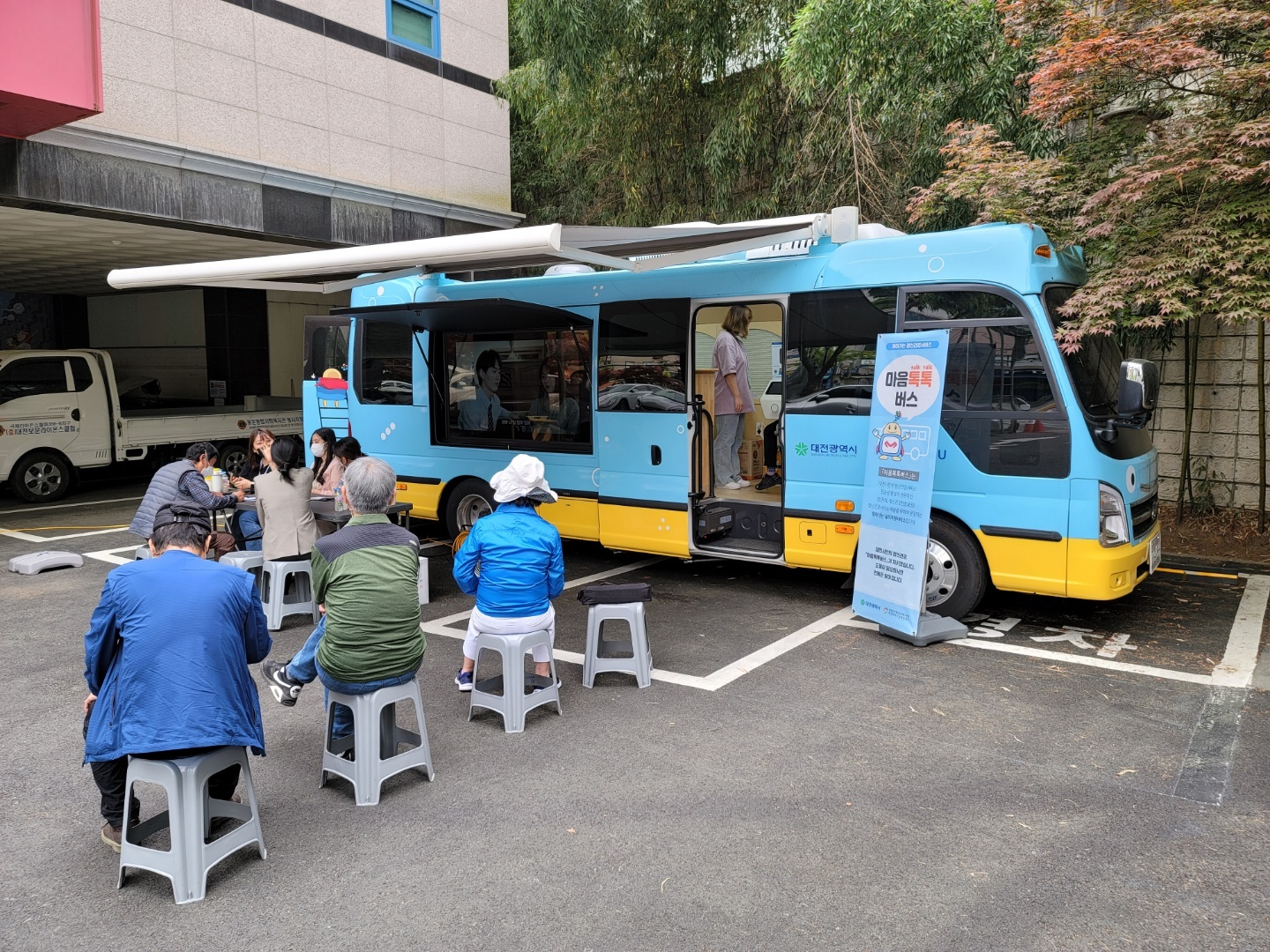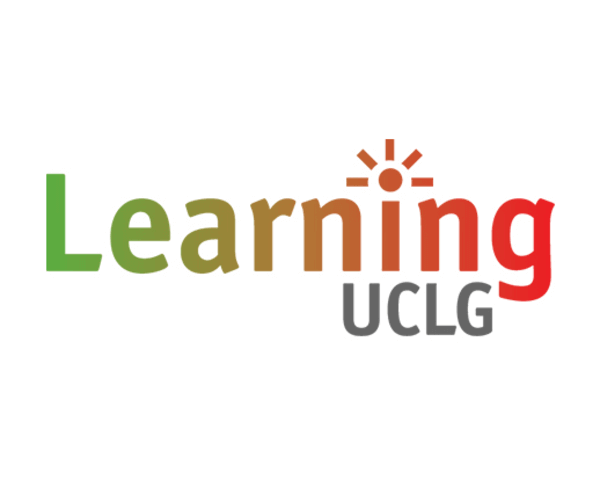City
Daejeon Metropolitan City
Main actors
Local Government
Project area
Neighborhood or district
Duration
Ongoing since 2020
A mobile mental health service
To ensure citizens can easily and conveniently access mental health support, the City of Daejeon established the ‘Mind TalkTalk Bus' service in an effort to prevent mental illness from becoming chronic by early detection and treatment. The Mind TalkTalk Bus has a mental health check-up area where visitors can be tested for conditions including depressions, anxiety, addiction, and suicide risk screening by using the stress test tool. After completing the check-up process, visitors have access to a confidential counselling session and if continued support is needed they are connected to professional treatment centres.
This case study was contributed from the UCLG Learning Team (learning@uclg.org).
On Map
The Map will be displayed after accepting cookie policy
